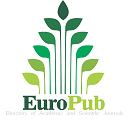Fisikokimia, Mikrobiologi dan Organoleptik Sosis Daging Sapi dengan Penambahan Tepung Biji Durian (Durio zibethinus Murr)
Abstract
Durian seeds are waste products from durian fruit that have not been utilized properly. Durian seed
flour contain high starch as well as tapioca flour, therefore, durian seed flour can be combined with
tapioca flour as a filler for sausage dough, in order to reduce production costs of sausage products. The
aim of this study was to analyze the physicochemical, microbiological and organoleptic properties of beef
sausage with the addition of 0%, 25% and 50% durian seed flour from a maximum 30% of the flour used
in making sausages. The results of physical characteristics showed that the addition of durian seed flour
had a significant effect (P <0.05) on the cohesiveness of sausages and had no significant effect (P>0.05) on
other physical characteristics of sausages. The microbiological assay showed that durian seed flour did
not affect the total plate count (TPC) of beef sausages. However, the total plate count of the sausages with
the addition of 25% durian seed flour still met the SNI (Indonesian National Standard) for sausages,
instead of sausages with 50% durian seed flour addition. The results of chemical analysis showed that the
addition of durian seed flour had no affect on moisture content, ash content, fat content, protein content,
and carbohydrate content of the sausages. The hedonic test values on the parameters of aroma, color,
texture and general appearance also showed no significant effect (P> 0.05), except for taste parameters.
The hedonic quality test value also showed that the addition of durian seed flour had no different effect
(P> 0.05) on the parameters of aroma, color, texture, and general appearance, but had different effect (P
<0.05) on the sausage taste. The addition of durian seed flour produced a distinctive taste which cover
the flavor of sausage.















